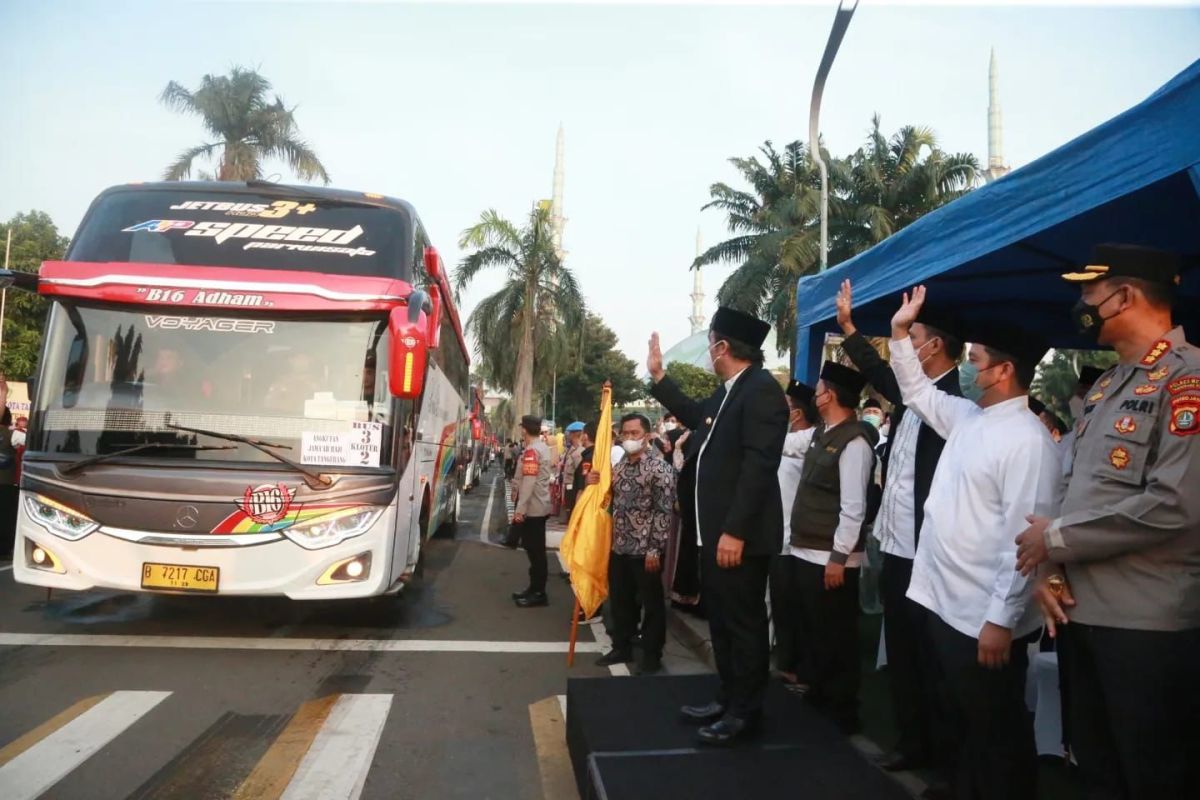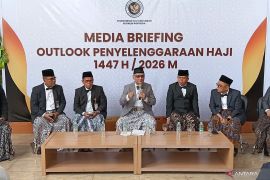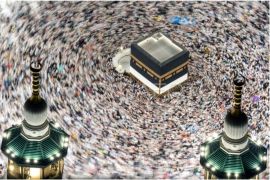“So, we recommend our congregation to drink water often; don't wait until (you are) thirsty. Because if you are thirsty, you will probably be dehydrated," head of the Hajj Health Center of the Health Ministry, Budi Sylana, said here on Saturday.
Saudi Arabia's weather is currently quite extreme, he noted. Humidity in Medina is only four percent, which is far lower compared to Indonesia, where it can reach 91 percent.
Low humidity, coupled with high temperature reaching 45 degrees, can increase the chances of heatstroke.
"It means it's very dry in Saudi Arabia," Sylana remarked.
Citing his experience, he said he once ran 5 kilometers in 30 minutes there, with almost no sweat dripping down his clothes. That means that the evaporation rate in Saudi Arabia is very high.
"So that's what causes the worshipers there to often feel like they don't feel dehydrated even though they are. So, they have to drink water," he reiterated.
Related news: Dehydration, heat stroke pose threat to Hajj pilgrims: Health Ministry
In order to prevent heatstroke, the Hajj medical staff will routinely remind prospective pilgrims to drink water and prepare ORS drinks that can restore minerals in the body.
“So the congregation does not only (experience) water loss, but also mineral loss. Minerals are potassium, sodium, things like that; so (please) drink a lot (of fluids). (In places with) low humidity, sunblock must be used, (else you would get) dry skin, which would lead to wounds. Use lip balm, otherwise, it will be very dry," he added.
The Health Ministry will also distribute three thousand special wristbands to pilgrims who have comorbidities as a way to identify them.
"Out of the 100,051 Hajj candidates, three thousand pilgrims who are at high risk would have wristbands attached," he informed.
The wristbands are shaped like a smartwatch and worn on the wrist. They will be connected to the prospective pilgrims’ smartphones via the TeleJemaah application. The wristbands will display data on the health condition of the pilgrims detected through infrared sensors. The data will be automatically sent to TeleJemaah and TelePetugas.
Monitoring these health indicators will be a part of routine health checks.
Related news: Some 35.81% of Indonesian Hajj pilgrims have high health risk: govt
Related news: Hajj pilgrims advised to keep wearing masks
Translator: Asep F, Mecca Yumna
Editor: Suharto
Copyright © ANTARA 2022












